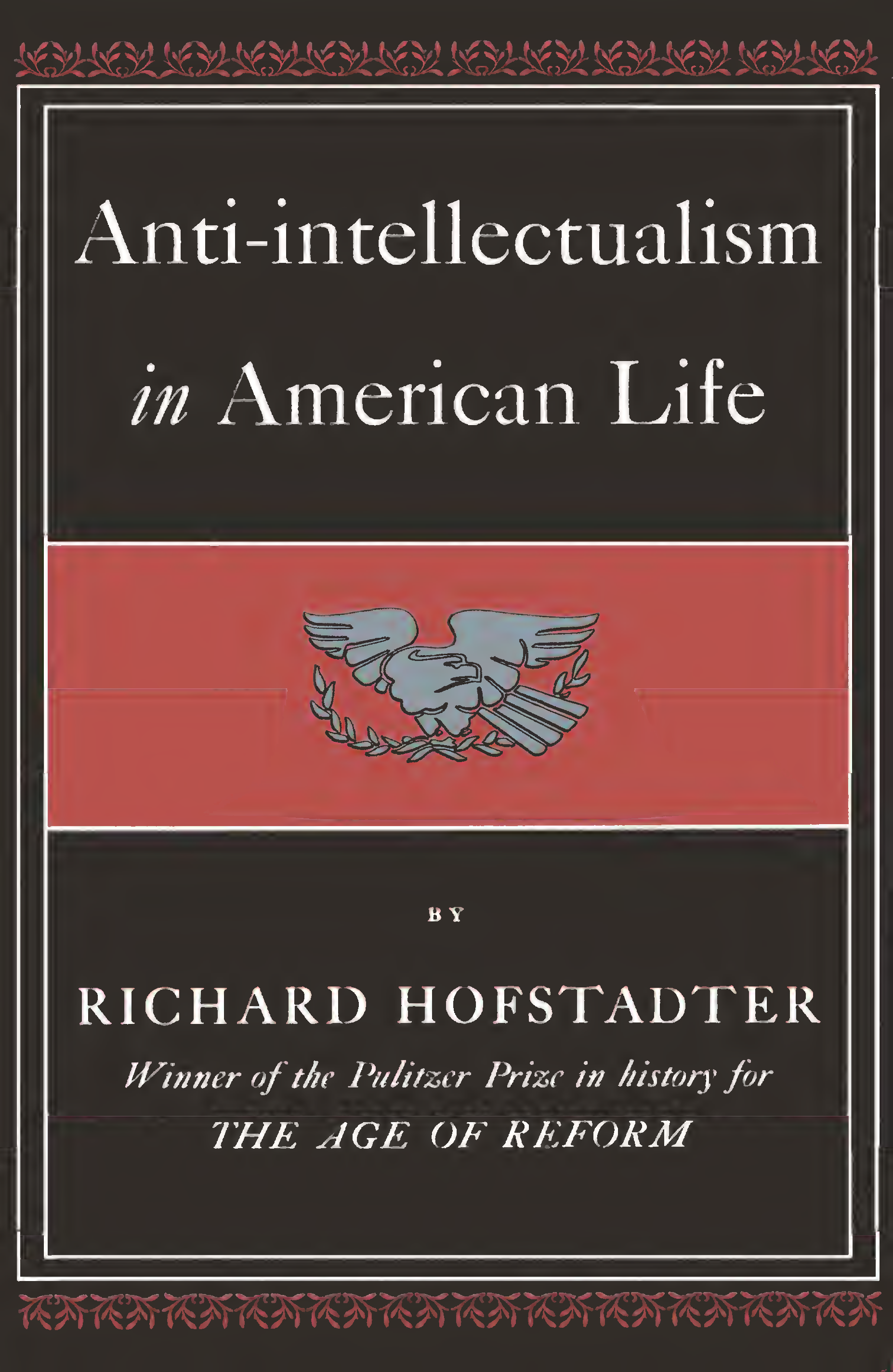Hardcover, 434 pages
English language
Published May 20, 1963 by Alfred A. Knopf.

Hardcover, 434 pages
English language
Published May 20, 1963 by Alfred A. Knopf.
The American intellectual has usually been regarded with considerable suspiclon or resentment by his countrymen, and in our own times the old matter-of- fact designation of him as the "highbrow has been succeeded by the more derisive "egghead." In this stimulating book, a Pulitzer Prize-winning historian uses the idea of anti-intellectualism as a device for looking at several of the less attractive aspects of American life.
This is not a formal history of a single idea, but rather an extended personal essay which explores various features of the American character. Mr. Hofstadter deals, in turn, with the peculiarly dismal anti-intellectual climate of the 1950's, with the evangelical religious movements from the Great Awakening to Billy Graham with the decline of the educated gentle man in American politics before the era of "the expert", with the insistent ideal of practicality among American businessmen, and with anti-intellectualism in education-the absurdities of life-adjustment …
The American intellectual has usually been regarded with considerable suspiclon or resentment by his countrymen, and in our own times the old matter-of- fact designation of him as the "highbrow has been succeeded by the more derisive "egghead." In this stimulating book, a Pulitzer Prize-winning historian uses the idea of anti-intellectualism as a device for looking at several of the less attractive aspects of American life.
This is not a formal history of a single idea, but rather an extended personal essay which explores various features of the American character. Mr. Hofstadter deals, in turn, with the peculiarly dismal anti-intellectual climate of the 1950's, with the evangelical religious movements from the Great Awakening to Billy Graham with the decline of the educated gentle man in American politics before the era of "the expert", with the insistent ideal of practicality among American businessmen, and with anti-intellectualism in education-the absurdities of life-adjustment theory and the uses and misuses of John Dewey. His concern is not merely to portray the scorners of intellect in American life, but to say something about what the intellectual is, and can be, as a force in a democratic society.